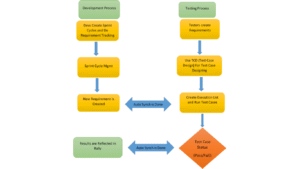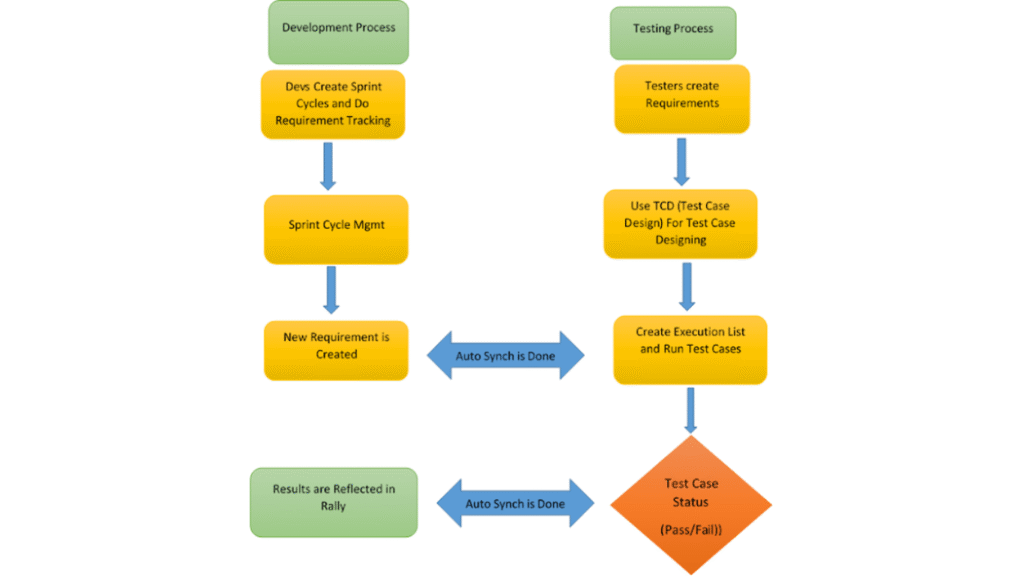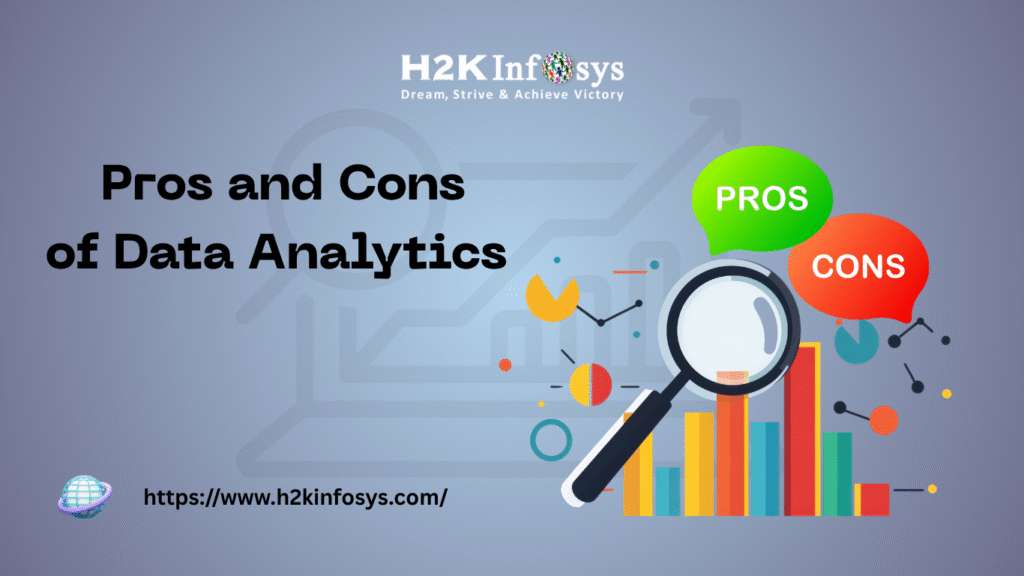It is impossible to exaggerate the importance of .NET in the current bespoke software development landscape. It has been a strong rival to a number of popular platforms, including Java, Cake PHP, Express.js, and others. Its fantastic features and security have influenced how projects are created, implemented, and managed in the IT business sector.
Every iteration of the .NET framework introduces intriguing and novel elements to conventional development methods. .NET 6 and .NET 8 versions are two of them. Their arrival has made seamless digital experiences possible, which has added another level of importance. It is therefore crucial to comprehend their disparities and ideologies. Check out the Dot net certification course to learn more.
Comparing .NET 6 and .NET 8: An In-Depth Analysis
The DOT NET framework was developed by Microsoft starting in the late 1990s. The concept of creating a platform based on so-called managed code (code that runs in a runtime environment) has made significant progress and gained widespread recognition in the IT industry.
In selecting the appropriate framework for your software projects, understanding the distinctions between DOT NET 6 and DOT NET 8 is essential. The emphasis on developer experience, scalability, and performance is at the core of these variations. For example, .NET 6 delivers improvements in runtime efficiency, leading to quicker execution times and better use of available resources.
However, .NET 8 places a strong emphasis on language improvements that enable programmers to create code that is clearer and more succinct. The choice between the two frameworks is dependent on the particulars of the project and its long-term objectives, as each framework presents compatibility problems.
Understanding the Core: ASP.NET vs ASP.NET Core
With the introduction of ASP.NET Core, the field of web application development has seen a revolutionary change. The process by which developers create web applications has been transformed by this cross-platform, lightweight framework. ASP.NET and ASP.NET Core differ mostly in their modernization and adaptability.
ASP.NET Core is designed to give enterprises the benefits of a quicker, more modular, and leaner architecture. It’s not just a technical changeover from ASP.NET to ASP.NET Core; it’s a calculated decision to make sure apps meet the needs of the current digital landscape.
Runtime and Performance Improvements: .NET 6 vs .NET 8
When it comes to .NET software development, performance is essential. Runtime performance has improved significantly in both .NET 6 and .NET 8. With the introduction of features like increased garbage collection and improved Just-In-Time (JIT) compilation, .NET 6 lowers execution times and resource consumption.
Conversely, .NET 8 concentrates on runtime optimization for particular workloads, guaranteeing that applications may effectively utilise resources. Enhancements in performance have a knock-on effect throughout the software development lifecycle, leading to more user-friendly and responsive apps.
Language Features and Productivity Boosts
The variety of programming languages available directly affects the output of developers and the calibre of their work. This is recognized by .NET 6 and .NET 8, which have language features that make complicated tasks easier to understand and optimise development processes. For example, pattern-matching features introduced in .NET 6 make working with structured data easier.
However, .NET 8 introduces new capabilities like enhanced pattern matching and record types, which let programmers create more compact and expressive code. These improvements result in higher productivity, lower mistake rates, and quicker development cycles, all of which help companies that need to produce high-quality software on schedule.
Modernising Your Stack: ASP.NET Core Advantages
Businesses must keep ahead of the curve in the digital age, and ASP.NET Core shows up as a strong option for streamlining the creation of web applications. This change is about matching applications to the needs of a quickly evolving environment rather than just upgrading technology.
With the leaner, more modular architecture that ASP.NET Core provides, developers can design applications that are easier to maintain and scale in addition to being faster and more efficient. Its cross-platform capability is revolutionary since it enables companies to reach a larger audience across a variety of hardware and operating systems. The modernity and adaptability of ASP.NET Core is the essence of its security advances.
Adopting ASP .NET Core is a smart move that guarantees web applications are ready to take on the challenges of the future as companies start their digital transformation journey.
Migration Strategies: Upgrading to .NET 6 and .NET 8
The road from older .NET versions to the newest ones is one that frequently requires manoeuvring through transitions in order to advance. A well-thought-out approach is necessary to address the possibilities and challenges of migrating to .NET 6 or .NET 8. Companies need to evaluate their current application architecture, compatibility needs, and codebase.
Thankfully, the .NET community offers tools and resources, including automated code analyzers and conversion guides, to make migrating easier. Risks can be reduced and a more seamless transition can be achieved with a staged strategy that includes testing and validation at every stage. Businesses can take advantage of .NET 6 and .NET 8 features without interfering with their daily operations if they plan ahead and create the conditions for future scalability, increased security, and improved performance.
Ecosystem and Community Support
The community is vital to innovation and information sharing in the field of technology. The vibrant communities and ecosystems supporting both .NET 6 and .NET 8 further enhance their worth. Developers can expedite project timelines and streamline development processes with the help of the vast libraries, frameworks, and tools that are available for these frameworks. The community’s collective expertise is a tremendous asset that aids in problem-solving, best practice exchange, and the exploration of novel development directions.
Because of the vibrant .NET ecosystem, companies investing in .NET 6 and .NET 8 have access to a wealth of resources, allowing them to build reliable, excellent solutions that meet the changing needs of their customers.
Decision-Making for Your Business: .NET 6 or .NET 8?
Making decisions in the Software Development industry involves more than just selecting a course of action; it’s a strategic process that takes project objectives, technical specifications, and long-term objectives into account. Selecting between .NET 6 and .NET 8 requires assessing the features and improvements that are relevant to your project. Take into account elements like ecosystem support, language features, and performance enhancements.
The current codebase and any prospective migration efforts are also important considerations when making decisions. Engaging with seasoned .NET developers or consultants who can offer insights specific to your company environment is advised. Businesses can optimise the advantages of their selected framework and set themselves up for success in a rapidly changing technology environment by making well-informed decisions.
Future-Proofing Your Applications: ASP .NET Core Benefits
Anticipating future demands is a task that organisations need to take on head-on in the fast-paced world of technology. Here’s where ASP.NET Core excels as a cutting-edge online application development option. Its advantages extend beyond the here and now, providing a flexible, scalable, and adaptable base to evolving technological trends. Because of ASP.NET Core’s cross-platform compatibility, companies can leverage a wide variety of platforms and devices, keeping their apps visible to a worldwide user base.
The emphasis on lightweight architecture and modularity guarantees that programs can change with little resistance, allowing for quick iterations and feature updates. Additionally, the improved security capabilities of ASP.NET Core help to protect data and shield companies from ever-changing cyber threats. Businesses may create apps that are robust for years to come and relevant now by implementing ASP.NET Core.
The Role of Microsoft .NET Training in Your Career
Mastering .NET development can significantly boost your career opportunities. With .NET 6 and .NET 8 leading the way for modern development, companies are actively looking for professionals who can:
- Build robust web applications.
- Optimize cloud-native architectures.
- Improve application performance using the latest .NET features.
At H2K Infosys, our Microsoft .NET Training offers hands-on learning, covering ASP.NET certification topics, Blazor, microservices, and performance optimization. With industry-aligned projects, you gain practical skills to stand out in the competitive tech market.
Key Takeaways
- .NET 6 introduced unified development, minimal APIs, and C# 10.
- .NET 8 builds on .NET 6 with improved performance, Blazor updates, and cloud-native tools.
- Upgrading to .NET 8 can significantly improve application speed, scalability, and developer productivity.
- Learning .NET through structured training like H2K Infosys’ Microsoft .NET Training can help you master these updates and grow your career.
Conclusion
Decisions made in the field of bespoke software development never remain isolated; they always impact the course of both enterprises and projects. Since the setting of every firm is different, the framework that is selected should be in line with both short-term objectives and long-term goals. Businesses may take advantage of performance benefits, upgrade their codebase, and develop applications that serve as cornerstones of innovation in the digital space by utilising the capabilities of .NET 6 and .NET 8. To learn more, check out the .net certification online.
Ready to upgrade your skills? Enroll in H2K Infosys Microsoft .NET Training today and earn your ASP.NET certification. Master .NET 8 features, hands-on projects, and real-world skills to accelerate your career!
























